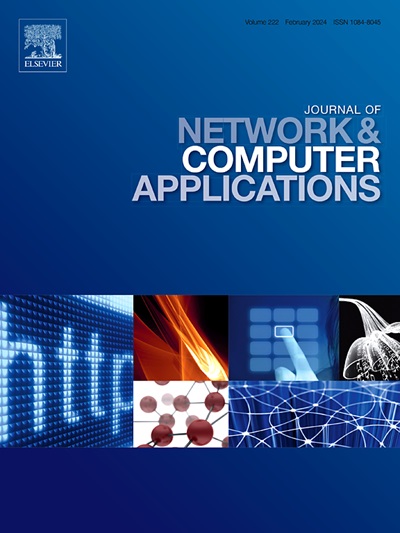MuLPP: A multi-level privacy preserving for blockchain-based bilateral P2P energy trading
IF 7.7
2区 计算机科学
Q1 COMPUTER SCIENCE, HARDWARE & ARCHITECTURE
引用次数: 0
Abstract
Challenges pertaining to user anonymity and data privacy are among the major concerns in blockchain-based bilateral Peer-to-Peer Energy Trading (P2P-ET). However, existing solutions focus only on user anonymity and are severely exposed to fake energy offers that can lead to denial-of-service attacks. Moreover, the off-chain communication mechanism used for private energy negotiation is computationally inefficient. This paper proposes a Multi-Level Privacy-Preserving system (MuLPP) for blockchain-based bilateral P2P-ET that provides user anonymity, energy price and energy amount privacy while protecting against fake energy offers. To address the privacy concerns in a comprehensive way, MuLPP offers three levels of privacy: public-level, energy authority-level and participant-level. MuLPP is based on blockchain smart contracts, RSA accumulators, public key aggregation and BLS-based multi-signature to achieve user anonymity, data privacy, robustness against fake energy offers and security in off-chain negotiation. This paper also proposes a permissioned anonymous decentralized P2P off-chain communication protocol, known as PADPeC, to enhance the privacy and performance of off-chain energy negotiations. Experimental results conducted in a real environment indicate that MuLPP provides 75 to 100 times lower on-chain latency. On the other hand, PADPeC reduces the message-sending time and the number of message exchanges in the off-chain communication by a factor of 4123 and 7.88 respectively compared to the existing systems. Formal security verification conducted using AVISPA security verification tool also revealed that the system is secure against various attacks such as sybil, network flooding and fake energy offer attack.
MuLPP:基于区块链的双边P2P能源交易多级隐私保护
与用户匿名和数据隐私相关的挑战是基于区块链的双边点对点能源交易(P2P-ET)的主要问题之一。然而,现有的解决方案只关注用户匿名性,并且严重暴露于可能导致拒绝服务攻击的虚假能源报价。此外,用于私人能源协商的链下通信机制在计算上效率低下。本文提出了一种基于区块链的双边P2P-ET多级隐私保护系统(MuLPP),该系统提供用户匿名性、能源价格和能源数量隐私,同时防止虚假能源报价。为了全面解决隐私问题,MuLPP提供了三个级别的隐私:公共级别、能源管理级别和参与者级别。MuLPP基于区块链智能合约、RSA累加器、公钥聚合和基于bls的多重签名,实现用户匿名、数据隐私、对虚假能源报价的鲁棒性和链下协商的安全性。本文还提出了一种允许匿名去中心化P2P链下通信协议PADPeC,以提高链下能源协商的隐私性和性能。在真实环境中进行的实验结果表明,MuLPP的链上延迟降低了75到100倍。另一方面,与现有系统相比,PADPeC将链下通信中的消息发送时间和消息交换次数分别减少了4123和7.88。使用AVISPA安全验证工具进行的正式安全验证也表明,该系统可以抵御各种攻击,如sybil,网络洪水和虚假能量提供攻击。
本文章由计算机程序翻译,如有差异,请以英文原文为准。
求助全文
约1分钟内获得全文
求助全文
来源期刊

Journal of Network and Computer Applications
工程技术-计算机:跨学科应用
CiteScore
21.50
自引率
3.40%
发文量
142
审稿时长
37 days
期刊介绍:
The Journal of Network and Computer Applications welcomes research contributions, surveys, and notes in all areas relating to computer networks and applications thereof. Sample topics include new design techniques, interesting or novel applications, components or standards; computer networks with tools such as WWW; emerging standards for internet protocols; Wireless networks; Mobile Computing; emerging computing models such as cloud computing, grid computing; applications of networked systems for remote collaboration and telemedicine, etc. The journal is abstracted and indexed in Scopus, Engineering Index, Web of Science, Science Citation Index Expanded and INSPEC.
 求助内容:
求助内容: 应助结果提醒方式:
应助结果提醒方式:


